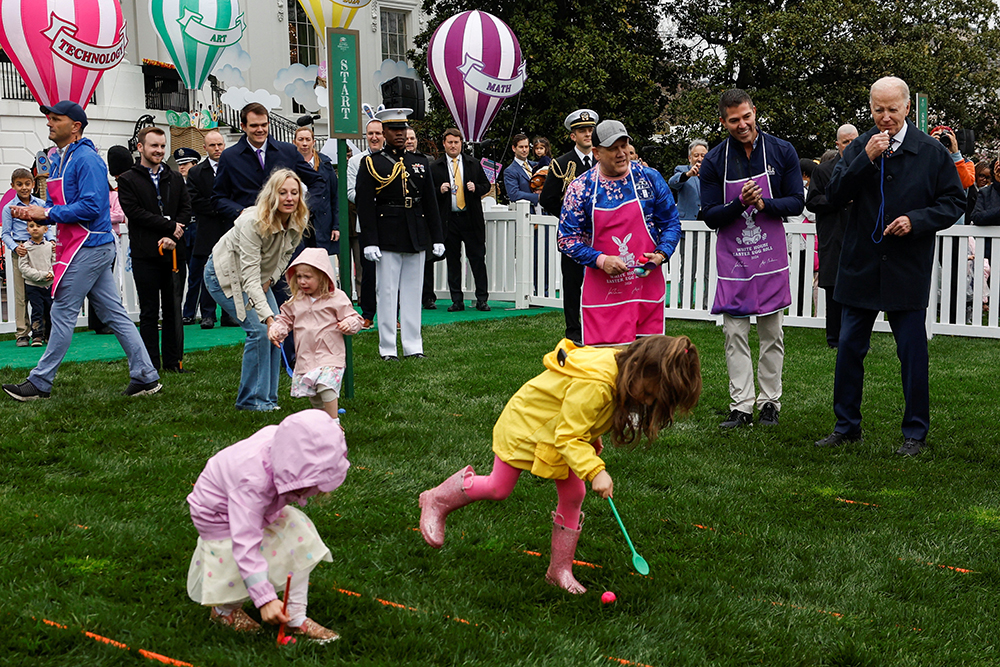
WASHINGTON — About 40,000 people took part in the April 1 White House Easter egg roll that involved an egg hunt, games, and entertainment as part of a longtime tradition dating back to 1878 when Rutherford Hayes was president.
For the 47th year, the American Egg Board, representing the nation’s egg farmers, partnered with the White House to put on the event. One aspect of it, the annual Easter egg contest, stirred controversy a few days even before it took place when some Republican leaders called out the Biden administration for banning religious depictions in the contest.
It turns out the contest, where artists paint the children’s winning entries on eggs to be displayed in the White House, has never allowed religious depictions, which Emily Metz, president and CEO of the American Egg Board, stressed in a statement.
“The American Egg Board has been a supporter of the White House Easter Egg Roll for over 45 years and the guideline language referenced in recent news reports has consistently applied to the board since its founding, across administrations.”
Similarly, a White House statement stressed that the guidelines banning religious themes from the eggs have been in place for decades.
In a press release about the contest, the American Egg Board said the egg contest, this year and in previous years, “has allowed for children to bring their creativity to life in a way that celebrates the joy of eggs and reflects the identified theme while remaining non-discriminatory and not showing preference to any individual religious or political viewpoints as AEB is prohibited from doing as a national checkoff organization.”
A checkoff organization promotes and provides research for a particular agricultural commodity and is required to follow federal guidelines.

The flyer for this year’s egg contest, which drew critical attention from House Speaker Mike Johnson, New York Rep. Elise Stefanik, and others, said the contest entries could not feature designs with “questionable content, religious symbols, overtly religious themes, or partisan political statements.”
Submissions were also not to be “inappropriate, indecent, obscene, or hateful,” and could not “contain material that promotes bigotry, racism, hatred or harm against any group or individual or promotes discrimination.” Drawings could also not promote illegal drugs or firearms.
This year’s contest was called “Celebrating National Guard Families” and asked children of National Guard families to decorate an egg template with “a snapshot of their life — a favorite activity, scenery in your state, your military family, a day-in-your-life.”
During the White House event, President Joe Biden told the crowd: “Easter reminds us of the power of hope and renewal, sacrifice and resurrection, but mainly love and grace toward one another. It’s time to pray for one another, to cherish the blessings and the possibilities that we have as Americans.”
The president had been criticized days earlier by Republican leaders and Donald Trump’s campaign for proclaiming March 31, which this year fell on Easter, as the Transgender Day of Visibility.
The International Transgender Day of Visibility was created on March 31, 2009, and has been celebrated annually on that date in the United States for more than a decade. The day is meant to raise awareness of the discrimination transgender people face.
